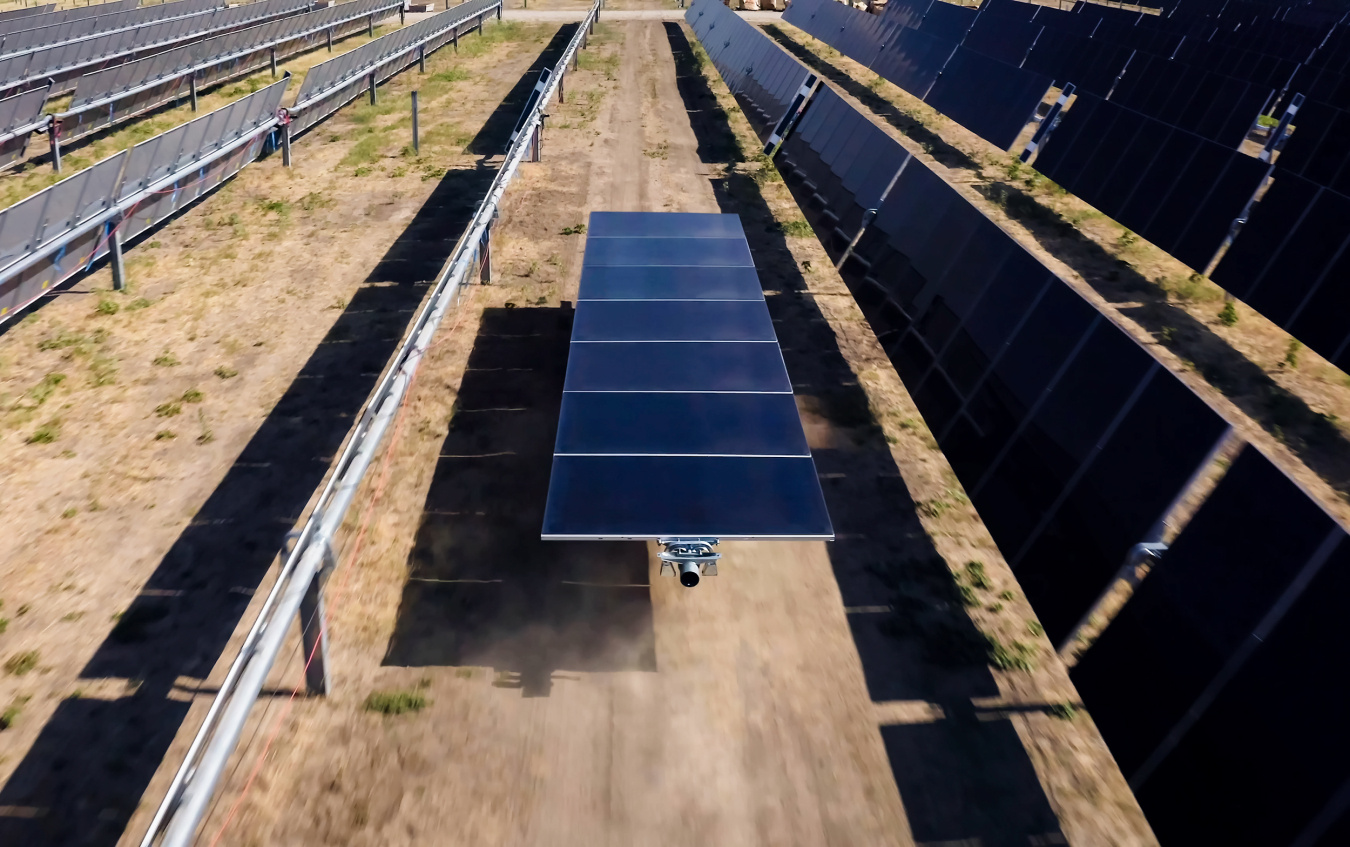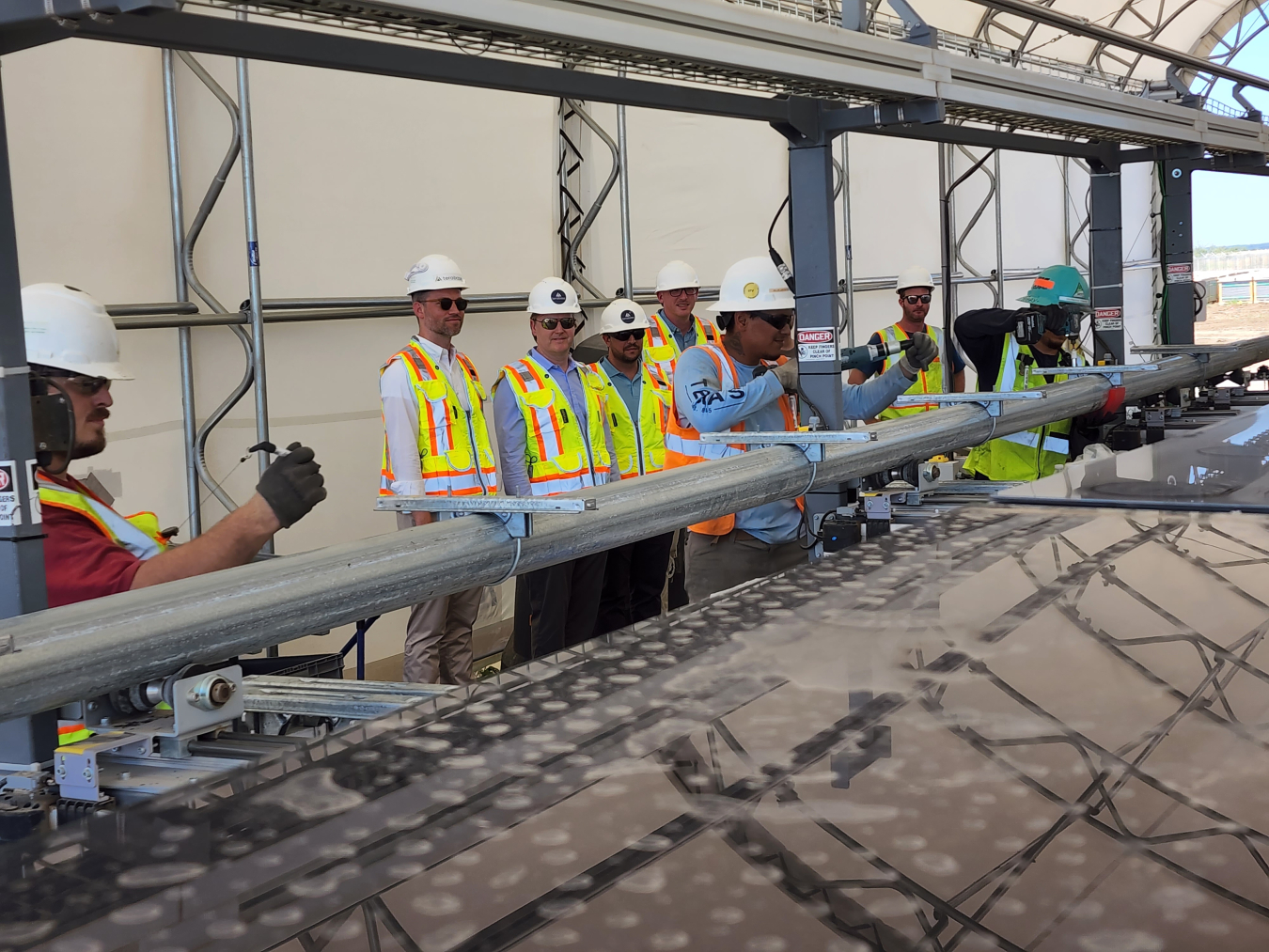Terabase Energy is transforming the traditionally manual processes of designing arrays, delivering modules, and installing them at the site.
Solar Energy Technologies Office
May 30, 2023
A rover brings solar panels to the Terabase field factory site.
On a bright, sunny morning, a team of machines settles in for a day of work. Their location: the construction site for a large-scale solar power plant. Their task: to install rows upon rows of solar panels, which will soon generate renewable energy to power American homes, businesses, and communities
While that may sound like an excerpt of science fiction, Terabase Energy received a $1 million award in 2019 from the U.S. Department of Energy (DOE) to develop a new field factory facility that brings automation to solar power plant installation. It uses robotic arms to lift heavy solar panels and connect them to solar trackers, saving time, energy, and ultimately, money.
Thanks in part to DOE investments, the cost of photovoltaic (PV) technologies continues to come down. But with large-scale solar projects, labor and installation costs are on the rise. Terabase’s solution, called Terafab, is transforming the processes of designing arrays, delivering modules, and installing them at the site. Terafab enables the completion of the module and trackers installation phase in half the time compared to traditional methods, thereby doubling productivity.

By automating the construction of large-scale plants, Terabase’s goal is to enable faster, safer deployment. Terabase’s technology can improve safety and efficiency of solar installation by allowing the machines to do the heavy lifting, while workers oversee the construction.
The project culminated with an open-field demonstration of solar plant construction in rural Texas in 2022, using the Terafab system to build 10 megawatts (MW) of a 400 MW site. The demonstration led to $44 million in follow-on funding and an official launch announcement of its automated, digital field factory in the spring of 2023.
On top of that, Terabase received an additional $1.5 million in DOE funding in 2020 to develop software that can mimic the operations of a factory, providing an overview of equipment deliveries, assembly, and other activities. When complete, this research and demonstration project will automate the distribution of solar power plant equipment to the installation location, bringing panels and trackers to the sites on smart transportation vehicles.
Terabase, now with more than 100 employees, is scaling up field deployments of the Terafab platform leveraging the progress catalyzed by these two DOE funding opportunities.
Learn more about Manufacturing and Competitiveness research in the DOE Solar Energy Technologies Office.

